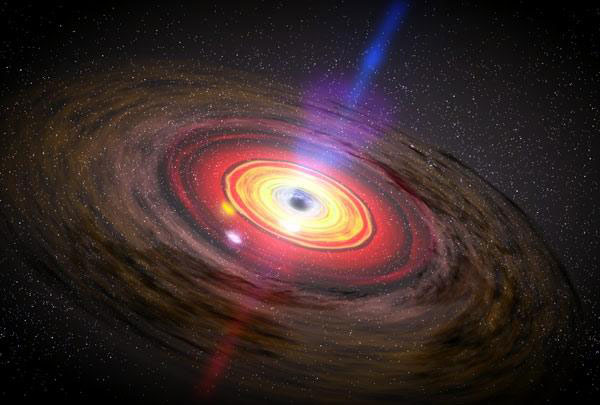TORONTO – As if black holes weren’t complicated enough, world-renowned theoretical physicist and cosmologist Stephen Hawking has now further complicated the theory — a theory he helped to popularize.

Hawking has been at the forefront of the theoretical study of black holes — a place in space where gravity is so strong that not even light can escape it — writing and speaking about them extensively.
Albert Einstein predicted the existence of black holes in 1915 with his general theory of relativity (the name “black hole” was coined in 1967). In 1974, Hawking theorized that a black hole would emit radiation based on what it consumed, but the information contained in the radiation would be so scrambled that there would be no way to tell what it had actually consumed.
Hawking’s theory also included an event horizon that surrounded a black hole where, once it was crossed, nothing could escape.
However, this theory conflicted with the science of quantum mechanics, the study of incredibly small particles, which states that information on matter can’t just disappear. So if a black hole sucks up something — say, for example, it sucked up a hockey stick — the radiation that is emitted should contain the information that tells you that it sucked up a hockey stick.

Two years ago, theoretical physicist Joseph Polchinski of the Kavil Institute for Theoretical Physics at the University of California, discovered a flaw in the theory that he dubbed the “firewall paradox.”
The theory was that, if an astronaut were to cross the event horizon, instead of carrying on as normal before the gravity on his or her feet became so intense that it began to stretch him or her — a term called “spaghettification” — the astronaut would be burnt to a crisp by a firewall that lay just within the event horizon.
In his recent paper, Hawking seeks to address the firewall paradox by claiming that instead of an event horizon, a black hole would have an “apparent horizon” where information would be kept on what was consumed and held there for some time, until it would be spit back out.
“The absence of event horizons mean that there are no black holes – in the sense of regimes from which light can’t escape to infinity,” Hawking wrote in his paper.
The theory is sure to stir up further debate among theoretical physicists.




Comments